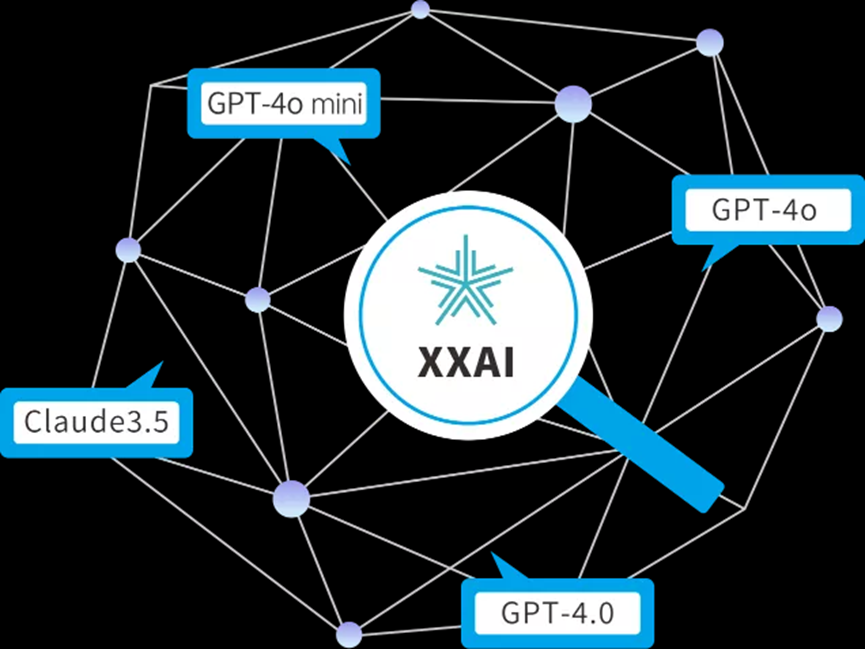Google Signs Groundbreaking Nuclear Deal

In an innovative move, Google has partnered with Kairos Power to acquire up to 500 MW of nuclear energy from small modular reactors (SMRs) by 2035. This landmark agreement marks the first corporate initiative of its kind aimed at powering AI data centers with clean, reliable energy.
About XXAI and Its Technological Integration
If the end of AI is nuclear power, then the end of XXAI is to bring top AI models to more users. XXAI has integrated some of the most powerful models in the market today, including GPT-4, Claude 3.5 Sonnet, and DALL·E 3. This integration offers users a diverse range of functionalities, spanning text generation, conversational AI, and image creation. For just \$9.9 a month, XXAI is making cutting-edge technology accessible, allowing individuals and small businesses alike to experience top-tier AI capabilities without breaking the bank.

The Google-Kairos Nuclear Agreement
The primary objective of the Google-Kairos nuclear agreement is to bring the first small modular reactor (SMR) online by 2030 while ensuring additional deployments through 2035. This milestone-driven partnership is designed to fast-track the commercialization of advanced nuclear energy by demonstrating both technical and market viability. Key aspects of the agreement include:
- An iterative development approach with multiple hardware demonstrations preceding the first commercial plant.
- The potential to deliver up to 500 MW of new reliable, carbon-free power to U.S. electricity grids.
- A focus on supporting AI technologies while meeting growing electricity demands in a clean and dependable manner.
- An emphasis on simplified designs, safety, and reduced construction timelines compared to traditional nuclear reactors.
Kairos Power SMR Technology
Kairos Power's SMR technology presents an innovative design that differentiates it from conventional nuclear reactors. This technology utilizes a molten fluoride salt coolant and a ceramic pebble-type fuel, operating at low pressure to enhance safety and efficiency. The key features of Kairos Power's SMR technology include:
- **Passive Safety**: The low-pressure operation and inherent design characteristics permit simplified safety systems.
- **Modular Construction**: The smaller size and modular nature aim to reduce construction timelines and costs.
- **Scalability**: The technology is adaptable for deployment in various sizes and locations, catering to different power needs.
- **Iterative Development**: Kairos Power employs a phased approach, planning several hardware validations before full-scale commercial deployment.
This advanced nuclear technology is poised to complement variable renewable energy sources, potentially providing reliable baseload power for AI-driven data centers and aiding in grid decarbonization.

Google's Clean Energy Goals
Google’s commitment to clean energy extends beyond its nuclear agreement, showcasing a comprehensive strategy to meet ambitious sustainability targets. The company aims to operate on 24/7 carbon-free energy by 2030, necessitating a diverse portfolio of clean energy sources. In pursuit of this goal, Google has:
- Pioneered corporate renewable energy purchases over a decade ago, setting industry standards.
- Invested in a wide range of advanced clean electricity technologies, including solar, wind, and now nuclear.
- Developed solutions that provide round-the-clock carbon-free power to complement intermittent renewable sources.
The agreement with Kairos Power to implement small modular reactors is part of Google’s broader drive to commercialize clean energy technologies that satisfactorily meet the growing demands of its global data centers and offices. This effort not only supports Google's internal sustainability objectives but also aims to accelerate the decarbonization of electricity grids worldwide, potentially generating new economic opportunities in communities across the United States.
Trends in Nuclear Energy within the Tech Industry
The rising interest in nuclear energy, especially small modular reactors (SMRs), reflects a broader trend within the tech industry as major companies seek reliable, carbon-free power sources to meet the increasing demands of AI and data centers. Google’s landmark deal with Kairos Power is part of a larger movement, with other tech giants making similar moves:
- Microsoft has recently signed a 20-year power purchase agreement with Constellation to use energy from the decommissioned Three Mile Island nuclear site.
- Amazon has announced plans for a hyperscale data center directly connected to a nuclear facility in Pennsylvania, investing \$650 million in the project.
- Oracle is exploring the integration of SMRs at its data center sites, with CTO Larry Ellison confirming development plans for such implementations.
Several factors are driving this shift towards nuclear power:
- **Increasing Energy Demands**: The rapid expansion of AI technologies and data centers requires substantial, reliable power sources that can operate 24/7.
- **Carbon Reduction Goals**: Tech companies are under pressure to lower their carbon footprints while still meeting growing energy needs.
- **Grid Stability**: Nuclear power can offer a consistent baseload to complement variable renewable sources like wind and solar.
- **Technological Advancements**: SMRs provide advantages in terms of safety, scalability, and deployment flexibility when compared to traditional large-scale nuclear plants.
Challenges and Outlook
Despite the potential benefits, nuclear energy still faces numerous public concerns regarding safety, radioactive waste management, and high construction and decommissioning costs. Additionally, SMR technology is in the early stages of commercial development, with many jurisdictions waiting on regulatory approvals.
However, the tech industry’s growing acceptance of nuclear power, particularly SMRs, signifies a notable shift in how the digital economy may be powered in the future. With companies like Google, Microsoft, and Amazon leading the charge, this trend could significantly accelerate the development and deployment of advanced nuclear technologies, reshaping the energy landscape for data centers and AI infrastructure over the coming decades.
Conclusion
The tech industry's pivot towards nuclear energy, exemplified by Google's partnership with Kairos Power, showcases an evolving approach to meeting energy needs sustainably. Concurrently, innovations like XXAI's integration of powerful AI models at accessible prices are expanding the frontier of technology, opening new opportunities for users worldwide. Together, these developments promise to change how we think about energy and technology, paving the way for a cleaner, more efficient future.